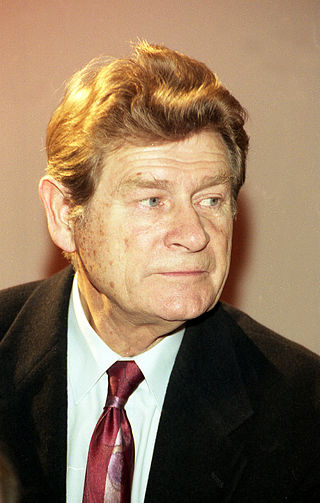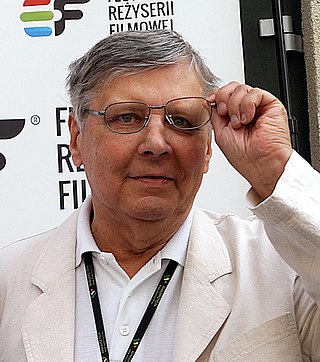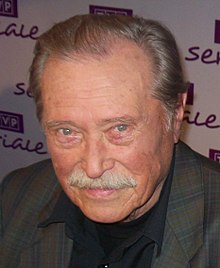
Stanisław Mikulski was a Polish theatre, television and film actor, and host of Koło Fortuny.

Stefan Jaracz was a Polish actor and theater producer. He served as the artistic director of Ateneum Theatre in Warsaw during the interwar period (1930–32), and within a short period raised its reputation as one of the leading voices for Poland's new intelligentsia, with groundbreaking productions of Danton's Death by Georg Büchner (1931), The Captain of Köpenick by Carl Zuckmayer (1932), as well as popular Ladies and Husars by Aleksander Fredro (1932) and The Open House by Michał Bałucki.

Igor Śmiałowski was a Polish actor.

Feliks Żukowski was a Polish actor and theatre director. He worked in theatres in Warsaw, Vilnius, Lublin, Częstochowa and Łódź. Feliks was a manager of Stefan Jaracz Teatr in Olsztyn. He was also a soldier of Armia Krajowa, prisoner of Sachsenhausen concentration camp.
More Than Life at Stake, also known as Stakes Larger Than Life and Playing for High Stakes is a Polish black and white TV series about the adventures of a Polish secret agent in Soviet service, captain Hans Kloss, who acts as a double agent in the Abwehr during Second World War in occupied Poland.

How I Unleashed World War II is a Polish feature film made in 1969, based on Kazimierz Sławiński's novel "Przygody kanoniera Dolasa". It was shot in Sochi, Baku, Poświętne and Łódź, among other places.

Maria Elżbieta "Iga" Cembrzyńska is a Polish actress, singer, composer, screenwriter, film director, and producer. She runs her own film company, Iga Film. She was the wife of Polish film director Andrzej Kondratiuk.
SS-Sturmbannführer Herman Brunner is a recurrent supporting character from the Polish popular TV series More Than Life at Stake. He is played by Emil Karewicz.
Mieczysław Stoor was a Polish film actor. He appeared in 37 films between 1954 and 1973.

Jerzy Duszyński was one of the most popular actors in a post-war Poland. He starred in a number of film productions as well as theatrical plays.

Bronisław Pawlik was a Polish actor. He starred in the TV series Stawka większa niż życie and 1978 comedy film What Will You Do When You Catch Me?. At the 1st Moscow International Film Festival (1959) he won a Silver Medal for acting for his role in the film The Eagle.

Andrzej Bogucki was a Polish television, stage and film actor, as well as operetta singer and songwriter, sometimes referred to as "The Polish Chevalier".

Kazimierz Rudzki was a Polish stage and film actor, theatre director.

The Ateneum Theatre in Warsaw is a Polish dramatic theatre founded in 1928. It resides in a building erected a year earlier in the interwar Poland as headquarters for the Professional Union of PKP Railway Workers with offices upstairs. After World War II, the severely damaged structure was restored to its former glory with public funds. The state-run theatre reopened in 1951; named after its first and already famous prewar director Stefan Jaracz.
Józef Kostecki was a Polish actor. A 1948 graduate of the Theatre Academy of Warsaw, he is best known for his role of Grand Duke Vytautas in Aleksander Ford's Knights of the Teutonic Order.
Kazimierz Talarczyk was a Polish film and theatre actor.

Andrzej Adam Zaorski was a Polish actor and cabaret artist, appearing in television, film and theater, as well as on the radio. He was the son of Tadeusz Zaorski, the brother of film director Janusz Zaorski, and the father-in-law of satyrist Andrzej Butruk.

Mieczysław Kalenik was a Polish actor.

Barbara Rachwalska was a Polish stage actress, known also for a number of supporting roles in films and TV series. She cofounded the New Theatre in Łódź.















